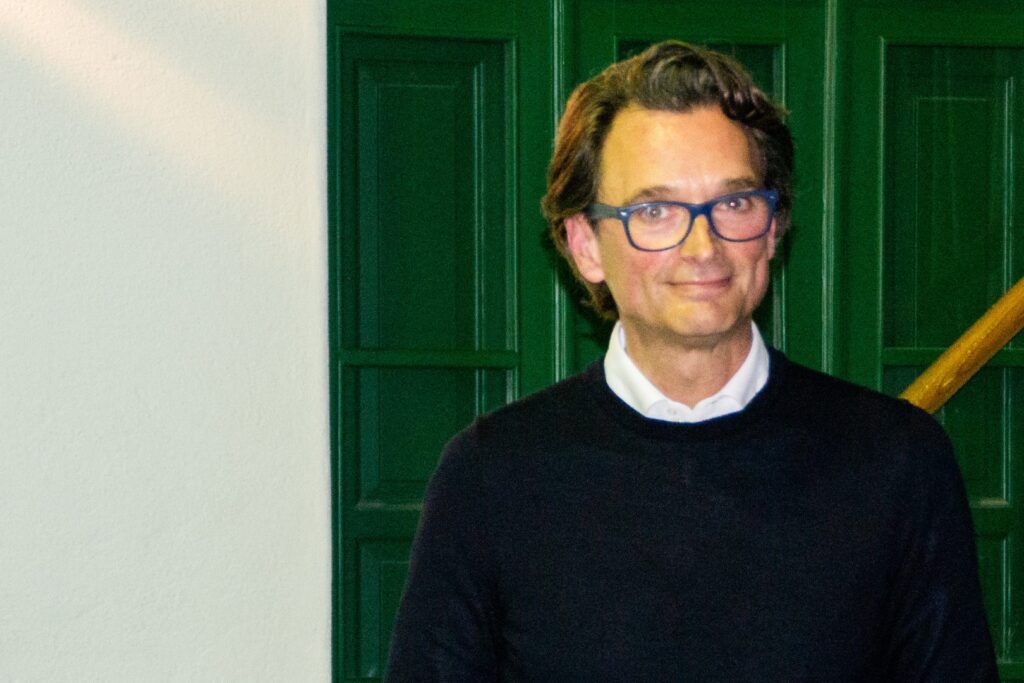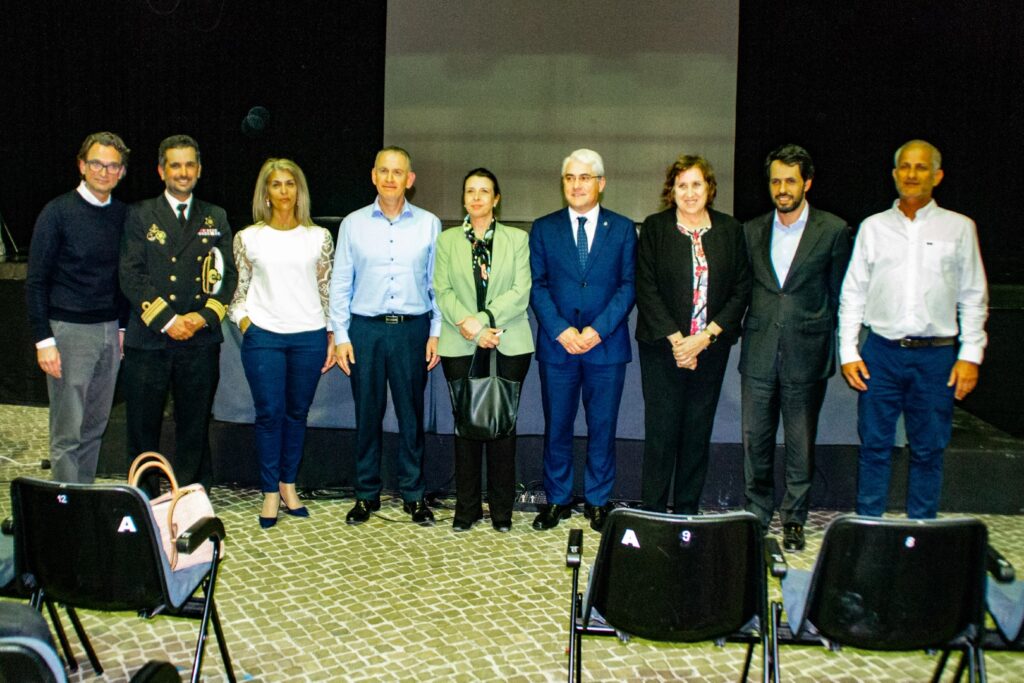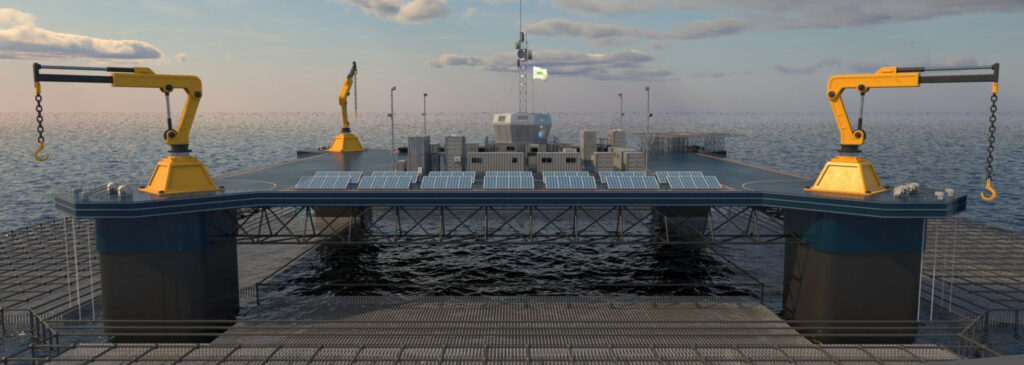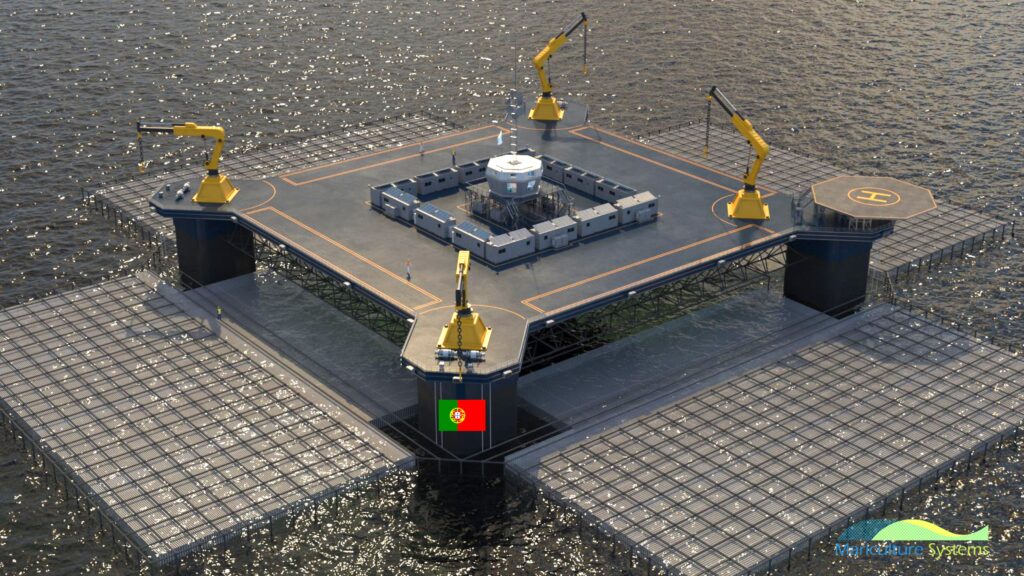It uses state-of-the-art technology, much of it new and recently developed, and will allow you to produce bream and sea bass on the high seas, away from the eyes of everyone and from the areas where local fishermen go to work. Vila Real de Santo António (VRSA) was the place chosen by the company Mariculture Systems to install an offshore aquaculture, which will be the first of its kind in the world and represents "a great advance" in the sector.
The Israeli-based multinational company made a request for an Aquaculture Activity Title to the Directorate-General for Natural Resources, Safety and Maritime Services (DGRM), a procedure that was in public consultation until last Thursday.
On the same day, a public session was held in VRSA, promoted by the Secretary of State for Fisheries, where Mariculture System presented the project and made itself available to clarify all the doubts of the representatives of the fishermen, but also of businessmen and the mayor of Vilarrealense.
According to Peter Beringer, the national director of Mariculture in Portugal, who made the presentation, the idea of this company is to install an offshore aquaculture, 18 kilometers (about 9 nautical miles) south of VRSA, based on a floating platform, surrounded by cages for the production of sea bream and sea bass.
This platform, an investment of around 2 million euros, will have the capacity to produce, ideally, 8 thousand tons per year and will occupy, «at most», an area of 40 hectares.

«Fish grow best in their natural habitat, which is the ocean, where they have oxygen, currents, nutrition in the water. It's the best possible location for the fish," he explained to Sul Informação Yariv Bar Yam, CEO of Mariculture Systems, who attended the VRSA session.
However, “until now, it was very difficult to raise fish in the ocean, because there are storms, big waves, wind and strong currents. It was technologically difficult to do so », he adds.
In this way, the company has developed «a new technology, the first of its kind in the world, which is capable of operating even in stormy weather and when there are gigantic waves», based on a floating platform, but which «is tied to the bottom with chains, so always stays in the same place”.
“It is very low, only 15 meters high. Even subject to waves of 10 or 15 meters, thanks to a special exclusive technology, which we invented and patented all over the world, the platform does not move, does not wobble, it is very stable», explains the businessman.
It is one of these platforms that could be installed off VRSA. If you get all the licenses and permits, the idea of investors is to have offshore aquaculture up and running "around the second half of 2024".
With the technology invented by Mariculture, «if there is a storm, we can lower all the cages up to 50 meters below sea level. The fish continue to live, growing normally, at the bottom».
«After a few days, when the storm is over, we go back to hoisting the cages. In other words, the operation is continuous, throughout the year, without any interruption”, added Yariv Bar Yam.

The choice of Vila Real de Santo António to inaugurate «the first installation of these in the world» is due to the fact that Portugal is «a very important country for our business».
“So far, we've done a lot of testing, including sea trials of a model. But commercial installations, these will be the first ever. (…) It will be the proof of concept. We will prove that it works perfectly and with all the benefits», believes the company's executive director.
After that, Mariculture intends to «spread hundreds of these installations all over the world».
Before the Sul Informação speaking with the company's executive director, Peter Beringer, had already explained, not only, the technical characteristics of this new technology, but also the intentions of Mariculture, when settling in Portugal.
“We want to have a mutually beneficial relationship with VRSA fishermen. We are convinced that this project of ours will be an asset for the municipality, for the Algarve and Portugal. We will do our best to contribute to the sustainable development of this territory», he said.
Assuring that he knows «that fisheries are an essential part» of the local economy, the national director of Mariculture Systems believes in the possibility of not only making the two activities compatible, but also «taking mutual benefits if we work together».
As for the impacts, the same official ensures that the aquaculture fish «cannot get out of the cages, nor can the ones that are inside».
The platform will also have automated systems, namely for feeding the sea bream and sea bass, and will operate using “clean solar energy”.
Peter Beringer also speaks of a «protected zone for marine wildlife to thrive and multiply».

With regard to potential conflicts with tourist activity, ensuring that the platform, at its distance from land and with its «small» dimensions, «will not be visible from the coast» – something that the Port Captain of VRSA would confirm, minutes later during the session.
After the presentation, both the representatives of the association of fishermen of Monte Gordo, who said that the project «does not affect» their activity, like Miguel Cardoso, from OlhãoPesca, did not put obstacles to the advancement of offshore aquaculture.
“We have long advocated that offshore aquacultures should be located more than six miles from the shoreline. From what we observed, this project is in line with what we stand for», said Miguel Cardoso, who even speaks of a «courageous and ambitious project».
Teresa Coelho, Secretary of State for Fisheries, who attended the session, also said that she considered this proposal "very good", but that, even so, she thought it was important to promote clarification, to allow the local community to make suggestions and contributions to the discussion. public.
The most concerned voice, among those in the room, was that of Álvaro Araújo, mayor of VRSA, who wanted guarantees that the installation of the platform “will not affect wild fauna”, something that will be subject to mandatory analysis Environmental impact study.
The mayor said he was "expectant" in relation to the project and warned that he would "defend the interests of the municipality of local fishermen", if necessary.
Still speaking to the Sul Informação, Yariv Bar Yam said the intention is to recruit staff locally, as well as have regional and national suppliers wherever possible.
“Now we need to talk, to familiarize ourselves with all the material suppliers, with the shipyards, with the fish feed suppliers. If it's only up to us, we'd like to buy everything we need here in the Algarve and in Portugal », he assured.
Even the platform, as far as possible, will be built in Portugal and by Portuguese companies, he said.



















Comments